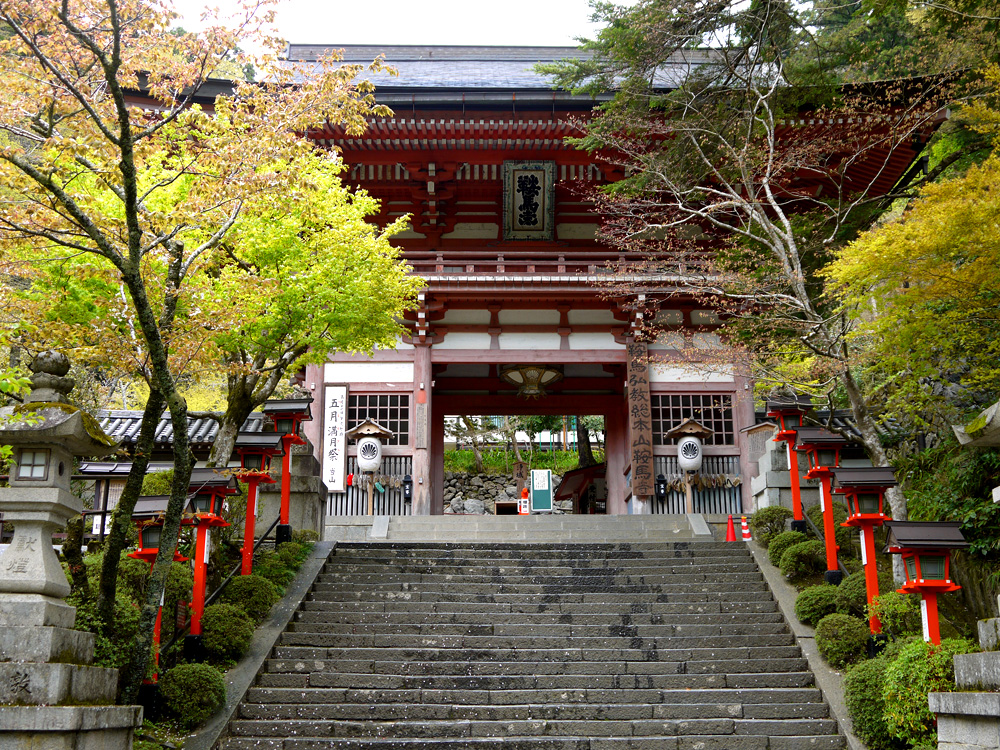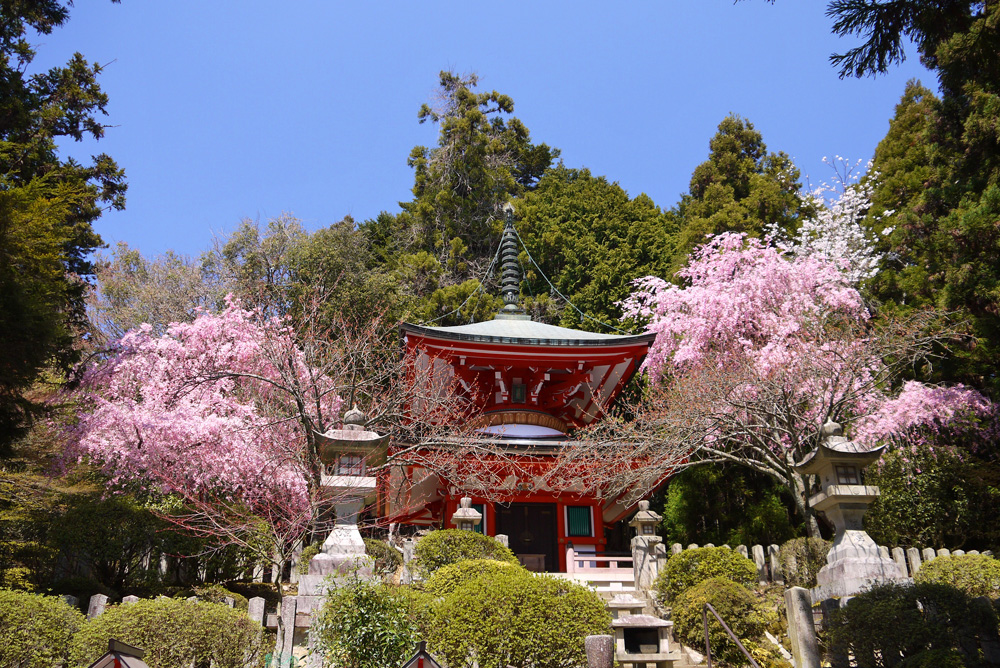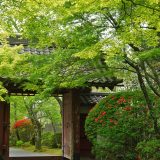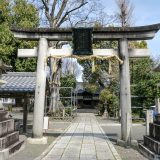

Table of Contents
What is Kuramadera Temple?
Kuramadera Temple is said to have originated as a hermitage where Ganjeishonin, a disciple of Wajo Ganjin, enshrined Bishamonten with the help of Bishamonten when he was attacked by a demon woman on Kurama Mountain during the Nara Period. Later, in the mid-Heian period, Isejin Fujiwara built a shrine dedicated to Kannon (Goddess of Mercy), which was enshrined together with Bishamonten. The temple is also known for the legend that Minamoto no Yoshitsune (childhood name: Ushiwakamaru) entered Kuramadera when he was 7 years old and left Kuramadera at the age of 16 to go down to Hiraizumi in Oshu.
Basic Information
| Name | Kuramadera Temple |
| Benefits | To ward off bad luck, to bring good fortune, and to cure illness |
| Hours of operation | 9:00-16:00 |
| Admission Fee | Entry: 500 yen Cable car (one-way): Adults 200 yen, elementary school students and younger 100 yen |
| Parking lot | No parking (use nearby parking lots) |
| Location | 1074 Kurama Honmachi, Sakyo-ku, Kyoto-shi, Kyoto 601-1111 |
| TEL | 075-741-2003 |
| Official website | http://www.kuramadera.or.jp/ |
Features and Highlights
- Ancient temple with over 1200 years of history
- One of the most famous power spots in Kyoto
- Famous for cherry blossoms and autumn leaves
- The place of training of Ushiwakamaru
- A temple associated with Akiko Yosano
Kujukuri no Michi: The approach to Kuramadera Temple is a 99-fold path, as described in the Pillow Book. The steep stone steps lead to the main hall, Kondo, which is located at the end of the path.
Honden Kondo : This is the main hall of Kuramadera Temple and is dedicated to Bishamonten and Kannon (Goddess of Mercy). The stage in front of the main hall commands a view of the mountain range of Mount Hiei.
Kurama-san Reihouden: This hall exhibits the history and cultural assets of Kuramadera Temple. Visitors can view the Ushiwakamaru helmet front stand said to have been used by Minamoto no Yoshitsune, as well as wooden statues and Buddhist ritual implements from Kuramadera Temple.
Monjo-gatani: This is the place where Minamoto no Yoshitsune is said to have been given the art of war by a tengu. The area is dotted with strange rocks such as Tengu mounds and Tengu rocks in a dense forest.
Yuki-jinja Shrine: This shrine is said to have been visited by Ushiwakamaru and is known as a power spot for prayers for victory.
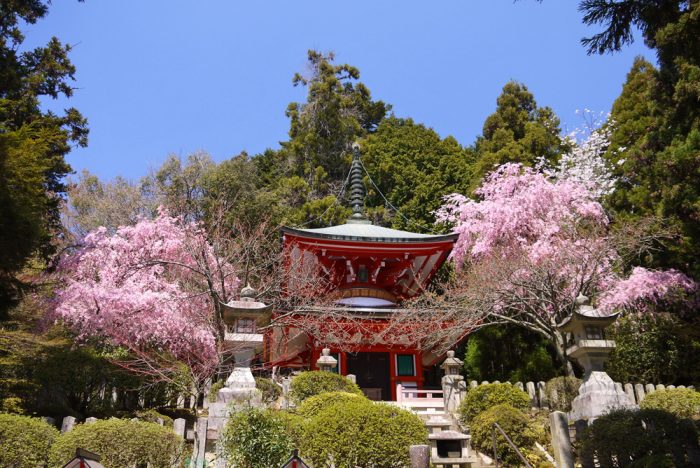
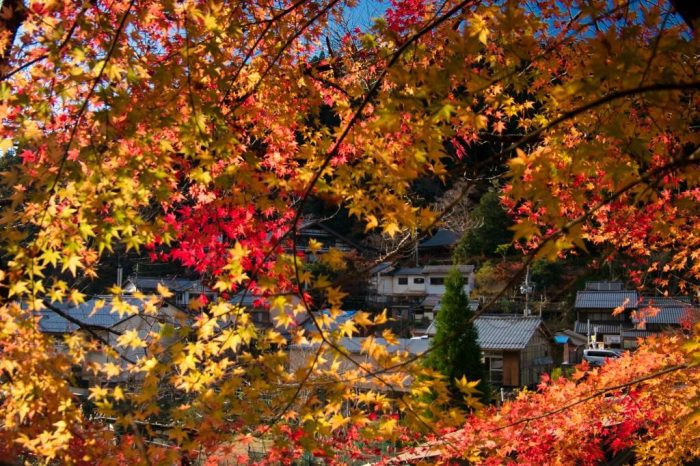
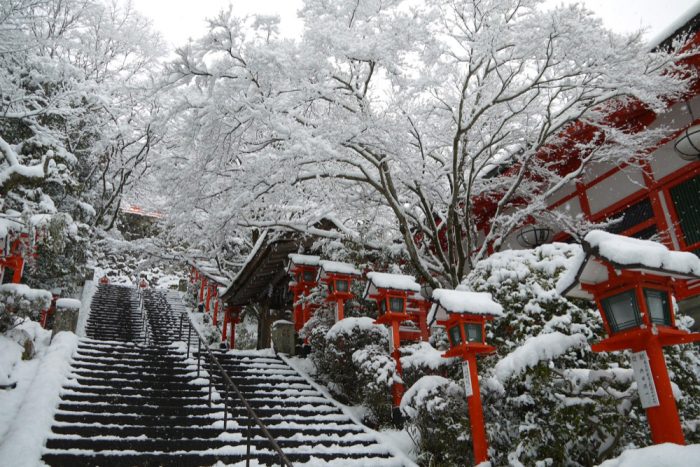
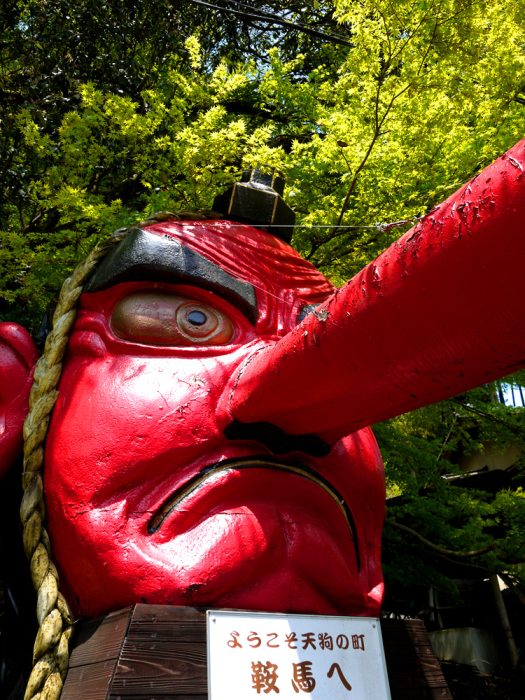
How to access
- Short walk from Kurama Station on the Eizan Railway (Niomon Gate)
Summary
Kuramadera Temple, located in the northern part of Kyoto City, is a mysterious temple where history and nature are in harmony. Famous as a power spot, many people visit the temple every year. Why not visit Kuramadera Temple and experience its sacred atmosphere?

